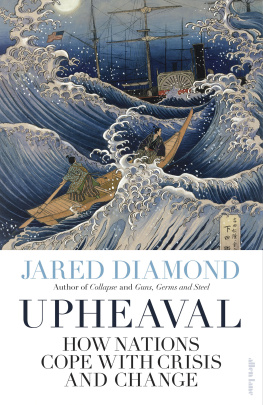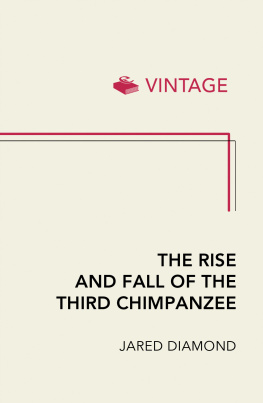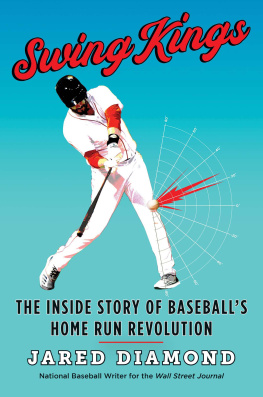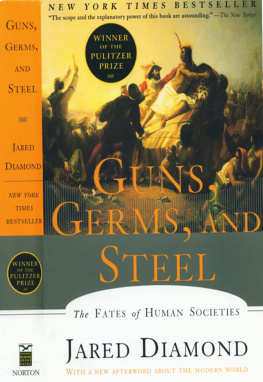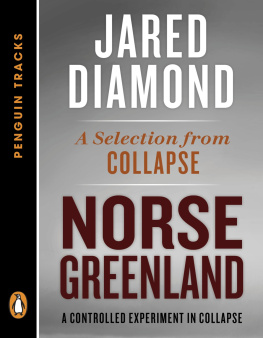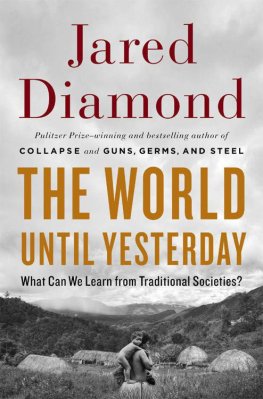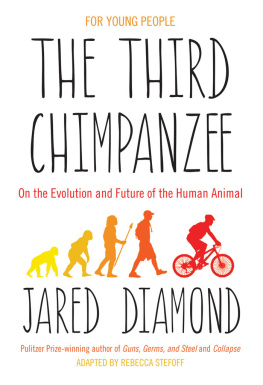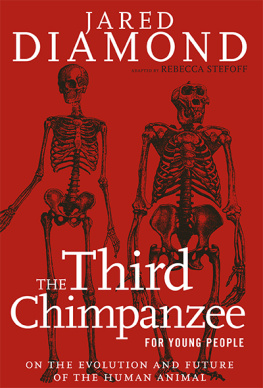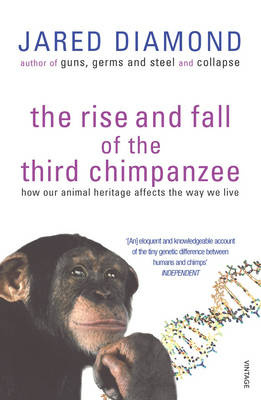Jared Diamond - Upheaval: How Nations Cope with Crisis and Change
Here you can read online Jared Diamond - Upheaval: How Nations Cope with Crisis and Change full text of the book (entire story) in english for free. Download pdf and epub, get meaning, cover and reviews about this ebook. year: 2019, publisher: Penguin Books Ltd, genre: Politics. Description of the work, (preface) as well as reviews are available. Best literature library LitArk.com created for fans of good reading and offers a wide selection of genres:
Romance novel
Science fiction
Adventure
Detective
Science
History
Home and family
Prose
Art
Politics
Computer
Non-fiction
Religion
Business
Children
Humor
Choose a favorite category and find really read worthwhile books. Enjoy immersion in the world of imagination, feel the emotions of the characters or learn something new for yourself, make an fascinating discovery.
- Book:Upheaval: How Nations Cope with Crisis and Change
- Author:
- Publisher:Penguin Books Ltd
- Genre:
- Year:2019
- Rating:3 / 5
- Favourites:Add to favourites
- Your mark:
- 60
- 1
- 2
- 3
- 4
- 5
Upheaval: How Nations Cope with Crisis and Change: summary, description and annotation
We offer to read an annotation, description, summary or preface (depends on what the author of the book "Upheaval: How Nations Cope with Crisis and Change" wrote himself). If you haven't found the necessary information about the book — write in the comments, we will try to find it.
Upheaval: How Nations Cope with Crisis and Change — read online for free the complete book (whole text) full work
Below is the text of the book, divided by pages. System saving the place of the last page read, allows you to conveniently read the book "Upheaval: How Nations Cope with Crisis and Change" online for free, without having to search again every time where you left off. Put a bookmark, and you can go to the page where you finished reading at any time.
Font size:
Interval:
Bookmark:

PENGUIN BOOKS
UK | USA | Canada | Ireland | Australia
New Zealand | India | South Africa
Penguin Books is part of the Penguin Random House group of companies whose addresses can be found at global.penguinrandomhouse.com.

First published in the United States of America by Little, Brown and Company 2019
First published in Great Britain by Allen Lane 2019
Copyright Jared Diamond, 2019
The moral right of the author has been asserted
Cover: A samurai rides to a meeting with Commodore Matthew C. Perry. Colour litho by Kinuko Y Craft National Geographic Image Collection / Bridgeman Images. Author photograph Jochen Braun
ISBN: 978-0-141-97779-9
This ebook is copyright material and must not be copied, reproduced, transferred, distributed, leased, licensed or publicly performed or used in any way except as specifically permitted in writing by the publishers, as allowed under the terms and conditions under which it was purchased or as strictly permitted by applicable copyright law. Any unauthorized distribution or use of this text may be a direct infringement of the authors and publishers rights and those responsible may be liable in law accordingly.
I dedicate this book
to the memory of my parents
Louis and Flora Diamond,
and
to the future
of my wife Marie Cohen
and of my sons Max and Joshua Diamond

At one or more times during our lives, most of us undergo a personal upheaval or crisis, which may or may not get resolved successfully through our making personal changes. Similarly, nations undergo national crises, which also may or may not get resolved successfully through national changes. There is a large body of research and anecdotal information, built up by therapists, about the resolution of personal crises. Could the resulting conclusions help us understand the resolution of national crises?
To illustrate personal and national crises, Ill begin this book with two stories from my own life. Its said that a childs earliest datable firm memories are laid down from around the age of four years, although children also retain indistinct memories of earlier events. That generalization does apply to me, because the earliest memory that I can date is of Bostons Cocoanut Grove fire, which happened just after my fifth birthday. Although (fortunately) I was not at the fire myself, I experienced it second-hand through the frightening accounts of my physician father.
On November 28, 1942, a fire broke out and spread rapidly through an overcrowded Boston nightclub called Cocoanut Grove (the owners spelling), whose sole exit became blocked. A total of 492 people died, and hundreds of others were injured, by suffocation, smoke inhalation, or being trampled or burned (). Boston physicians and hospitals were overwhelmed not just by the wounded and dying victims of the fire itself, but also by the fires psychological victims: relatives, distraught that their husbands or wives or children or siblings had died in a horrible way; and the fires survivors, traumatized by guilt, because they had survived while hundreds of other guests had died. Until 10:15 P.M., their lives had been normal, and focused on celebrating the Thanksgiving holiday weekend, a football game, and wartime leaves of soldiers. By 11:00 P.M., most of the victims were already dead, and the lives of their relatives and of the survivors were in crisis. Their expected life trajectories had been derailed. They felt ashamed that they were alive while a dear one was dead. The relatives had lost someone central to their identity. Not only for the fires survivors but also for Bostonians remote from the fire (including me as a five-year-old), the fire shook our faith in a world of justice. Those punished werent naughty boys and evil people: they were ordinary people, killed through no fault of their own.
Some of those survivors and relatives remained traumatized for the rest of their lives. A few committed suicide. But most of them, after an intensely painful several weeks during which they could not accept their loss, began a slow process of grieving, reappraising their values, rebuilding their lives, and discovering that not everything in their world was ruined. Many who had lost spouses went on to remarry. Even in the best cases, though, decades later they remained mosaics of their new identities formed after the Cocoanut Grove fire, and of their old identities established before the fire. We shall have frequent opportunity throughout this book to apply that metaphor of mosaic to individuals and nations in whom or in which disparate elements coexist uneasily.
Cocoanut Grove provides an extreme example of a personal crisis. But it was extreme only in that bad things befell a large number of victims simultaneously in fact, so many victims that the fire also provoked a crisis demanding new solutions in the field of psychotherapy itself, as well see in . Many of us experience individual tragedy first-hand in our own lives, or second-hand through the experiences of a relative or a friend. Yet such tragedies that strike only one victim are as painful to that victim, and to his or her circle of friends, as Cocoanut Grove was to the circles of its 492 victims.
Now, for comparison, here is an example of a national crisis. I lived in Britain in the late 1950s and early 1960s, at a time when it was undergoing a slow national crisis, although neither my British friends nor I fully appreciated it then. Britain was world-leading in science, blessed with a rich cultural history, proudly and uniquely British, and still basking in memories of having had the worlds largest fleet, the greatest wealth, and the most far-flung empire in history. Unfortunately, by the 1950s Britain was bleeding economically, losing its empire and its power, conflicted about its role in Europe, and struggling with long-standing class differences and recent waves of immigrants. Things came to a head between 1956 and 1961, when Britain scrapped all of its remaining battleships, experienced its first race riots, had to begin granting independence to its African colonies, and saw the Suez Crisis expose the humiliating loss of its ability to act independently as a world power. My British friends struggled to make sense of those events, and to explain them to me as an American visitor. Those blows intensified discussions, among the British people and British politicians, about Britains identity and role.
Today, 60 years later, Britain is a mosaic of its new self and its old self. Britain has shed its empire, become a multi-ethnic society, and adopted a welfare state and high-quality government-run schools to reduce class differences. Britain never regained its naval and economic dominance over the world, and it remains notoriously conflicted (Brexit) about its role in Europe. But Britain is still among the worlds six richest nations, is still a parliamentary democracy under a figurehead monarch, is still a world leader in science and technology, and still maintains as its currency the pound sterling rather than the euro.
Font size:
Interval:
Bookmark:
Similar books «Upheaval: How Nations Cope with Crisis and Change»
Look at similar books to Upheaval: How Nations Cope with Crisis and Change. We have selected literature similar in name and meaning in the hope of providing readers with more options to find new, interesting, not yet read works.
Discussion, reviews of the book Upheaval: How Nations Cope with Crisis and Change and just readers' own opinions. Leave your comments, write what you think about the work, its meaning or the main characters. Specify what exactly you liked and what you didn't like, and why you think so.

